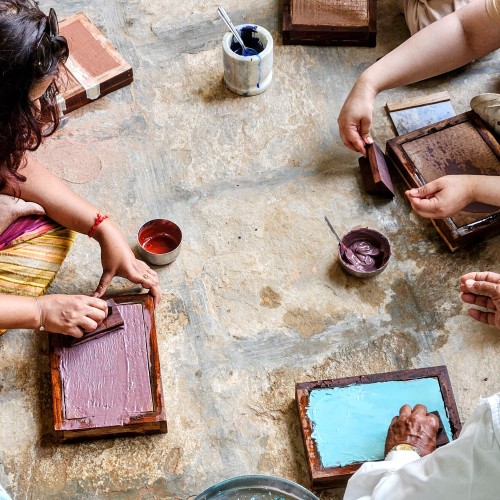
RAJASTHANI LIME PLASTER WORKSHOP
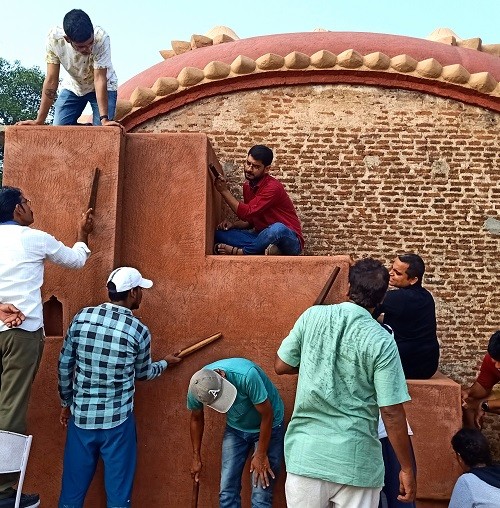
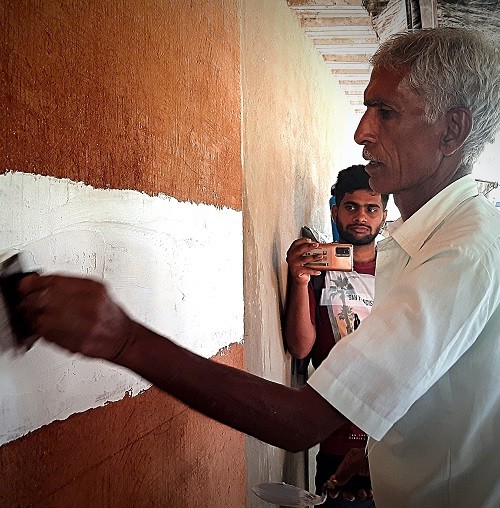
INTRODUCTION
Lime plasters are natural, breathable and beautiful to look at and touch. Cooling and permeable in nature they allow buildings to breathe, passively regulating internal air quality, resulting in healthier living spaces.
Lime as a construction material has withstood the test of time with the oldest examples being traced back to the ancient temple of Gobeklitepe dated to 9000BC.
In this intensive workshop you will learn three traditional Rajasthani lime plastering techniques from the Shekawati region; Thappi, Lohi & Araish.
WORKSHOP CONTENT
Practical Sessions
In this four day workshop you will learn practically how to :
-
How to identify appropriate materials.
-
How to prepare & mix mortars
-
Preparation and use of herbal admixtures
-
How to apply Thappi, Lohi & Araish plaster.
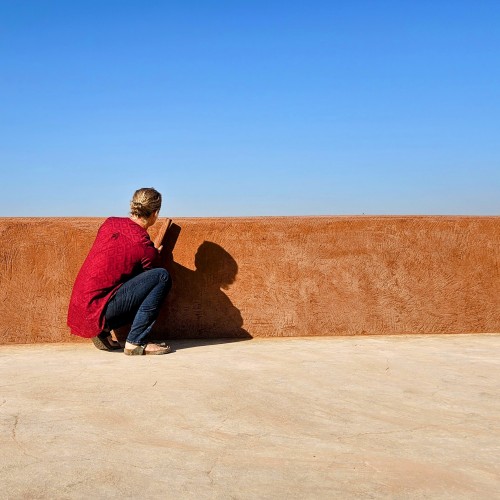
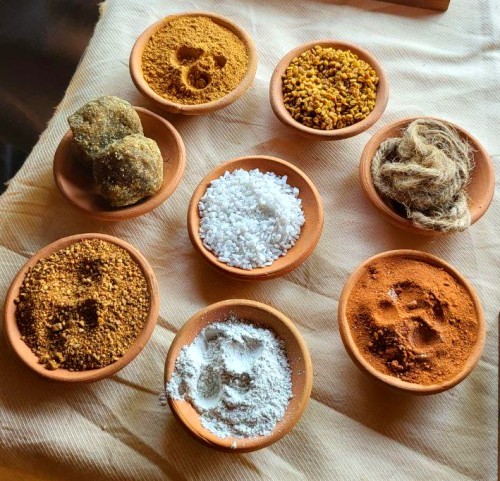
Theory sessions
Practical hands on learning will be supplemented by short theory sessions explaining the science behind the tradition. Topics covered will include:
-
The Lime Cycle
-
Introduction to the various types of lime and their uses
-
Benefits of Lime
-
Durability of lime & comparison with cement
-
Thermal properties of lime
-
Use of Herbal Admixtures
-
Pozzolans - What they are and why we use them
THAPPI - LOHI - ARAISH
Thappi
Made from a combination of slaked lime, surki (fired brick powder), aged gur & metthi seed water, Thappi is an attractive textured plaster that gets its name from the wooden implement that is used to tap the plaster as it cures, firming the plaster & preventing the formation of cracks. The characteristic lines hatched across the plaster are caused during this process giving the plaster its own unique charm. Thappi is also the base upon which the finer Lohi and Araish are applied. Finished plaster has a warm rusted pink hue due to the presence of the red brick powder.
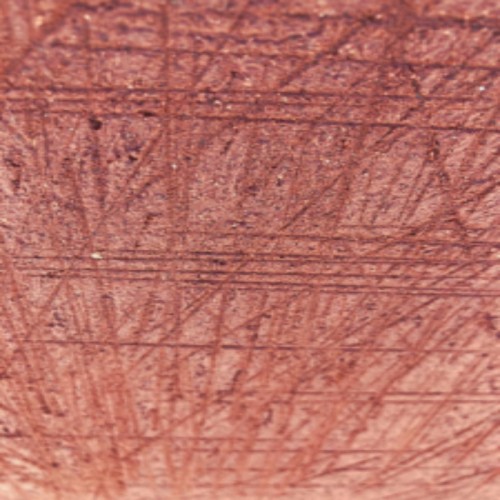
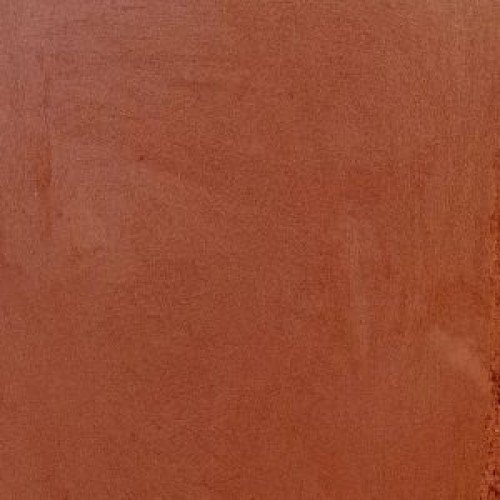
Lohi Plaster
Lohio plaster is made by combining finely sieved slaked lime with finely sieved surki, which is then ground on a stone to a fine paste. This is then applied as a thin smooth finishing layer over Thappi. Finished plaster has a warm rusted pink hue, the same as Thappi.
Araish Plaster
The most painstaking of all Araish is made by combining finely sieved slaked lime with marble powder then grinding it to a fine paste. It is then applied over either Thappi or Lohi plaster and at a certain stage of curing is burnished by hand with a stone. Araish is a silky smooth waterproof plaster with a finish similar to that of the Moroccon polished plaster Tadelakt. Traditionally Araish was most often kept pure white. Natural pigments can also be added to achieve subdued colours.
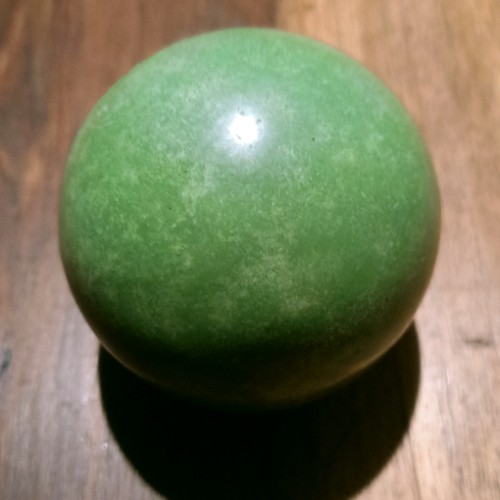
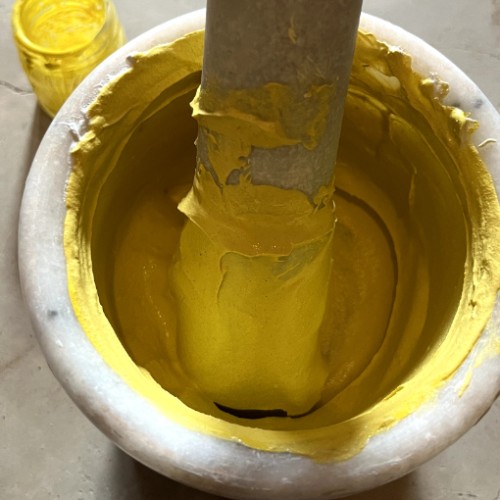
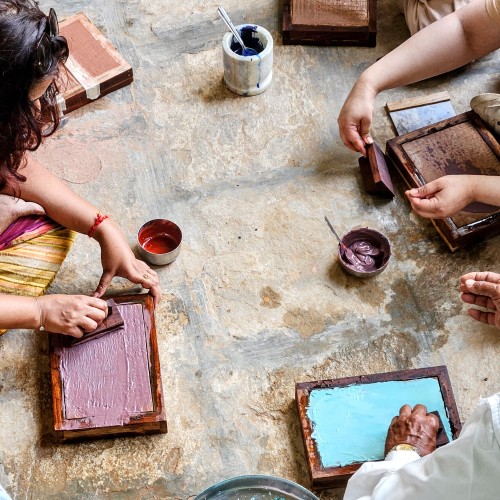
For more details on these finishes and other lime plasters please see our blog on the Luxurious Lime Plasters of India
MASTER CRAFTSMAN
All practical sessions will be taught by a highly sklled Rajasthani Master Craftsman with over 25 years experience working in this tradition.
LOCATION - SHEKAWATI
Shekawati is home to many grand Haveli’s demonstrating the fine craftsmanship of generations past. A wander through the alleys and backstreets of the towns and cities in the region offers a window onto the once grand past of the trading families of this region.
Shekawati was an important halt in the middle of the desert on the ancient caravan route connecting India and the rest of Asia to the Middle East. During the 19th and 20th centuries the trade network took a dramatic turn under the East India Company, resulting in the outmigration of many traders from Shekawati the port cities of Kolkata and Chennai to take advantage of the trade taking place with Europe.
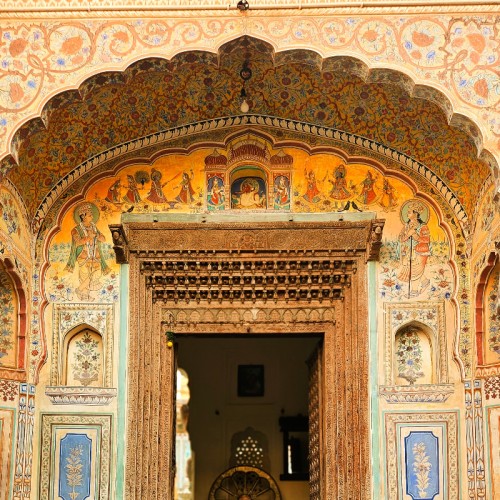
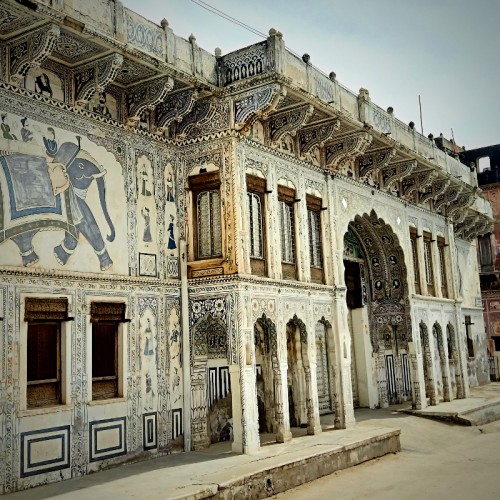
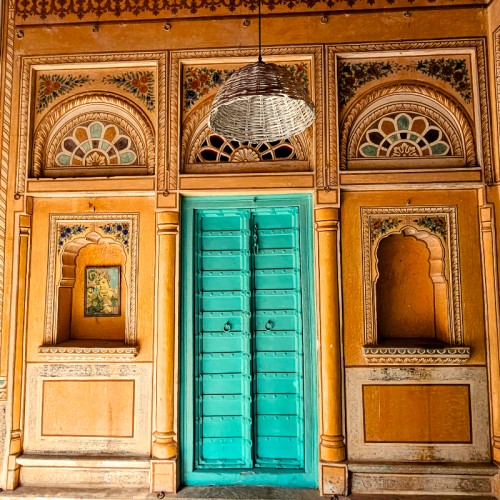
Fortunes were made and in turn so were elaborate Haveli’s. The traders sending money back home to construct and elaborately decorate grand homes. Even now one can sense the rush to outdo one’s neighbour with fine architectural embellishment. Ornate timber work, imported hand made tiles and coloured glass, fine plasters and of course colourful frescoes.
The frescoes were achieved over Araish. A laborious finish that requires not only the plaster to be ground by hand on a stone, but once applied it is then burnished until it provides a shiny mirror finish. The extensive use of this plaster throughout homes is testament to the owners commitments to nothing but the finest of finishes for their homes.
Shekawati is home to all three of the lime plasters being taught in this workshop; Thappi, Lohi and Araish, Throughout your time in Shekawati you will have the opportunity to see for yourself the durability and timelessness of these finishes.
WORKSHOP SITE
We are excited to offer this unique opportunity to learn these three heritage lime plasters in their homeland - Shekawati.
By participating in this workshop you will be contributing to the conservation of one of Mandawa’s more humble Haveli’s. Humble is of course relative to Shekawati.
This Haveli is home to extensive frescoes and Araish plasters. An understated but elegant private residence that has undergone inappropriate repair with cement mortar leading to extensive damage. We will be removing the cement mortar and repairing the degraded wall underneath before re-plastering over it.
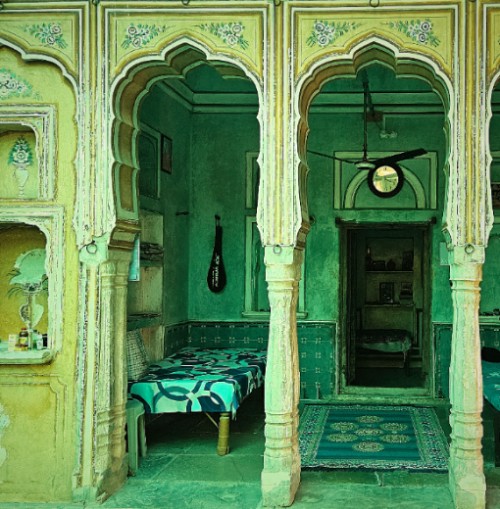
Unfortunately there is a lack of awareness in the region about the incompatibility of cement on heritage lime structures. Through this workshop we hope to raise awareness amongst the local community regarding this harmful practice.
INCLUSIONS & COST
Workshop Fees Rs14000
-
Practical instruction directly under the guidance of highly skilled master craftsman
-
Theory sessions provided by Kimberley
-
All materials and equipment
-
Vegetarian lunch
-
Morning and afternoon tea
**Accommodation is not included in the workshop fees. We are able to arrange accommodation for you on your behalf. To do so, please enquire.
WORK TRADE POSITION
-
One work trade position is available for an experienced videographer/ editor able to create one or two short video clips of the workshop.
-
For further details please get in touch